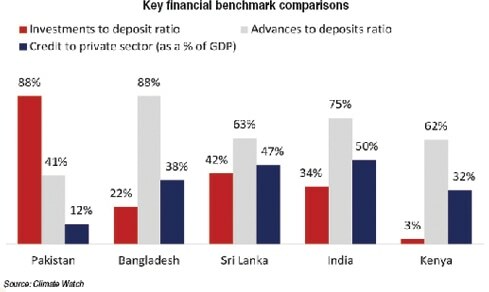HIGHLY intelligent people may be more rather than less likely to succumb to motivated reasoning, cherry-picking evidence to reinforce their existing beliefs and ignoring contradictory data.
Even with people with high numerical skills were unable to reason analytically when the correct answer collided with their political beliefs, according to a forthcoming journal article in “Trends in Cognitive Sciences”.
In fact, people with high information-processing skills were the most likely to express beliefs consistent with their political standpoint (“The partisan brain: an identity-based model of political belief” Van Bavel and Pereira, 2018).
The authors focus on the role of ideology and political partisanship in the United States, but many of the same arguments about motivated reasoning apply to the energy sector.
Many of the most important issues in the energy world, including the impact of Opec on oil prices, climate change, the transition to clean energy, the future of fossil fuels and electric cars, renewable energy and peak oil, have become intensely emotional.
Energy professionals would be better served by dialling back on the heated rhetoric and exploring the issues more calmly and with an open mind
In some cases, the intensity of energy debates has been heightened because it has become conflated with political partisanship. In others, the ferocity of disputes stem from origins that lie outside politics.
Views about peaking oil demand, electric cars and Opec have become an important marker of social identity, and people will cling to them even when presented with contradictory evidence.
Tribalism
The problem with motivated reasoning is that it strongly distorts not just policy preferences but the way people process information and even the way they perceive and interpret the same piece of data.
The authors blame much of this motivated reasoning on the “tribal nature” of the human mind, which leads people to value dogma over truth.
Belief in a particular ideology, whether about politics or an issue in the energy sector, provides an important and satisfying sense of group belonging as well as access to resources and patronage.
But when the demands of ideology and group membership clash with the evidence, many individuals will disregard contradictory data rather than modify their thinking or risk losing group approval.
“Social identities have been shown to shape the way people interpret information. In turn, interpretations of the world shape political attitudes, judgements and behaviours,” Van Bavel and Pereira write.
“Because people believe that they see the world around them objectively, members of other parties who disagree with them are seen as uninformed, irrational or biased.” “Partisan identities bias a broad range of judgements, even when presented with facts that contradict them,” according to the authors.
What the authors describe as “our ancient capacity for tribalism”, recognising similar characteristics in others, may originally have served a useful evolutionary purpose.
But it can be fatal to a calm and constructive analysis of problems whether they are about high politics or energy issues.
Analysis
Many of the fierce disagreements around future peaks in oil demand and the uptake of electric vehicles, for example, or the impact of Opec on oil prices, are not really disagreements about technical issues but disputes about values and ideology.
Tribalism is what turns so many discussions about energy into an emotive shouting match between opponents who accuse each other of being at best uninformed and incompetent or at worst mendacious.
In most cases, energy professionals would be better served by dialling back on the heated rhetoric and exploring the issues more calmly and with an open mind.
Unfortunately, much of the analysis in the energy sector comes from individuals and institutions promoting a distinctive viewpoint rather than taking a more data-driven empirical approach.
Dispassionate analysis has often become inextricably mixed up with highly motivated lobbying and advocacy, to the severe detriment to the quality of the analysis.
In general, individuals and institutions can be good analysts, or good lobbyist/advocates, but not both. Mixing the two is almost always a mistake.
Published in Dawn, The Business and Finance Weekly, February 26th, 2018














































Dear visitor, the comments section is undergoing an overhaul and will return soon.